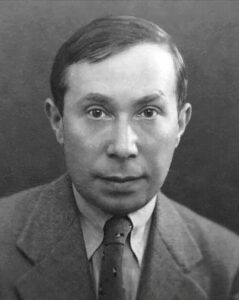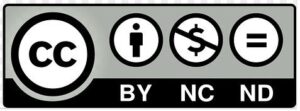Sobre Apología y Critón Strūthiō 002
Parte de:
«Sobre la Apología de Sócrates y el Critón de Platón» / I

Leōnardus Strūthiō (1899-1973)
ĒRVDĪTIŌRIBVS ***
Tabla de contenidos
Versiō hispānica Aemiliā Aquadītī auctrīce 2
Sócrates caracteriza el estilo de su discurso como carente de artificio: él, que dice toda la verdad y nada más que la verdad; él, que no tiene nada que ocultar, no necesita de arte alguna; su discurso será por completo transparente. Sus acusadores, que han hablado en forma muy convincente, lo han hecho de manera artificiosa (τεχνικός). Nos preguntamos si la virtud del orador no consiste también en hablar en forma persuasiva. ¿No debe decir la verdad de una manera ordenada y lúcida? ¿No debe disponer su argumentación en forma adecuada y elegir sus palabras con cierto cuidado? En síntesis, ¿no debe hablar con arte? Sus acusadores habían calificado a Sócrates de inteligente orador, y en general se lo consideraba muy diestro, capaz de convertir en muy fuerte el discurso más débil (18b8-c1). En consecuencia, resultaba imperativo que afirmara, desde el comienzo mismo, que no hablaría de manera artificiosa. Sócrates sugiere que su inexperiencia en la dicción forense le impide hablar en forma adecuada ante el tribunal: no puede hablar con arte. Pero también dice que no sería propio de un hombre de su edad presentarse ante el tribunal como un joven con discursos inventados, es decir, con mentiras; no dice que no podría hacerlo aunque quisiera: puede hablar con arte.
Sócrates muestra cuán persuasivos y astutos son sus acusadores al bosquejar el fondo de la acusación. Con este propósito, hace una distinción entre las primeras acusaciones falsas y los primeros acusadores, por una parte, y las últimas acusaciones y los últimos acusadores, por la otra. Los primeros acusadores son más peligrosos que los últimos, esto es, los que lo denunciaron formalmente, porque aquellos convencieron a la mayoría de los jurados o de los atenienses mientras todos o gran parte de estos eran todavía niños, porque son muchos y porque lo han acusado durante largo tiempo. (Los antiguos acusadores eran, en muchos casos, los padres de los jurados.) Han acusado falsamente a Sócrates de ser un hombre sabio, un pensador de las cosas de lo alto, alguien que ha investigado todo lo que está bajo la tierra y que convierte el discurso más débil en el más fuerte. Aunque esta acusación es falsa, no es extrema; los primeros acusadores no acusaron a Sócrates de haber investigado todas las cosas de lo alto. Tampoco dijeron que no respetaba a los dioses o no creía en ellos: su ateísmo ha sido una inferencia de los oyentes (en muchos casos, niños) que creían que quienes hacen las cosas mencionadas por los acusadores no creen, además, en los dioses. Si uno que otro poeta cómico formulaba las susodichas acusaciones, no lo hacía con malicia ni creía en ellas. En cuanto a los otros, los primeros acusadores propiamente dichos, no pueden ser identificados ni, en consecuencia, sometidos a un contrainterrogatorio: Sócrates apenas puede hacer otra cosa que negar lisa y llanamente sus acusaciones. Por otra parte, los primeros acusadores no pueden sostener sus cargos contra las negativas de Sócrates.
Perge ad initium paginae huius
Leōnardī Strūthiōnis verba 2
Socrates characterizes the manner of his speaking as artless: he who says the whole truth and nothing but the truth, he who has nothing to conceal, does not need any art; Socrates’ speech will be altogether transparent. His accusers who had spoken most persuasively, had spoken artfully (τεχνικός). One wonders whether the virtue of the speaker does not also consist in speaking persuasively. Must he not say the truth in an orderly and lucid fashion? Must he not arrange his argument properly and choose his words with some care? In brief, must he not speak artfully? Socrates’ accusers had said that he is a clever speaker, and it was generally believed that he was a most artful speaker—that he could render the weaker speech the stronger (18b8-c1). It was therefore imperative that he should state right at the beginning that he will not speak artfully. He suggests that his inexperience in forensic diction prevents him from speaking properly before the court: he cannot speak artfully. But he also says that it would not be becoming for a man of his age to come before the court like a youth with fabricated speeches, i.e., with lies; he does not say that he could not do this if he wished to: he can speak artfully.
Socrates shows how persuasive and artful his accusers are by sketching the background of the accusation. For this purpose he makes a distinction between the first untrue charges and the first accusers on the one hand, and the later charges and the later accusers on the other. The first accusers are more dangerous than the later ones, i.e., than those who have formally indicted him, because they have persuaded the majority of the jurymen or of the Athenians while all or many of them were still children, because they are many, and because they have accused him for a long time. (The old accusers were in many cases the fathers of the jurymen.) They have accused Socrates untruthfully of being a wise man, a thinker on the things aloft, one who has investigated all things beneath the earth, and one who renders the weaker speech the stronger. Although this charge is untrue, it is not extreme; the first accusers did not accuse Socrates of having investigated all things aloft. Nor did they say that he does not respect, or believe in, gods; that he does not believe in gods was inferred by the listeners (in many cases children) who believed that those who do the things mentioned by the accusers also do not believe in gods. If one or the other comic poet raised the charges mentioned, he did not do it maliciously, and did not believe in them. As for the others, the first accusers proper, they cannot be identified and therefore crossexamined: Socrates can do hardly more than flatly deny their charges. On the other hand, the first accusers cannot defend their charges against Socrates’ denials.
Perge ad initium paginae huius
Iūra
El texto en lengua inglesa fue publicado de manera póstuma en un volumen en honor al prof. Jacob Klein: Essais in Honor of Jacob Klein (Annapolī, ē Typographeō Acadēmīae Sānctī Iōhannis MCMLXXVI). Aunque nosotros tomamos como base lo aparecido en una antología dedicada a escritos del prof. Strūthiō en inglés en 1983: Studies in Platonic Political Philosophy (Sicagī, ē Typographeō Ūniversitātis Sicagī MCMLXXXIII). La versión castellana es obra de Aemilia Aquadīs, aparecida en la traducción del volumen mencionado anteriormente (Bonāeropolī, ē Typographeō Amōrrortī MMVIII). La publicación de estos fragmentos promueve la difusión en castellano de la obra del profesor Leōnardus Strūthiō con fines académicos y de formación. Conminamos a visitar su biblioteca más cercana o adquirir el volumen físico en su librería de confianza.

Perge ad initium paginae huius
ĒRVDĪTIŌRIBVS ***
